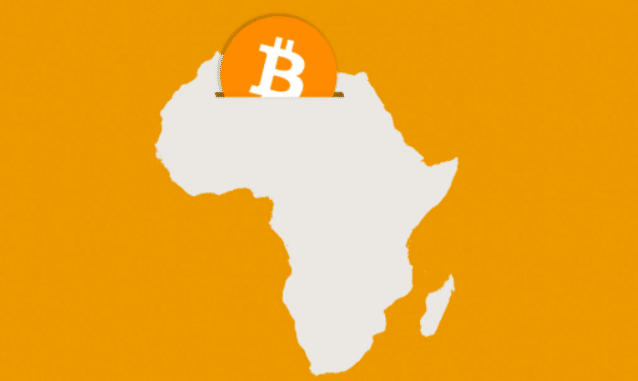Cryptocurrencies have disrupted traditional financial systems in recent years, and Bitcoin profiled itself as the most famous crypto. It has already found its way to e-commerce and investment, but this crypto is also present in the world of online gaming. In this article, we will explore the growing influence of Bitcoin in the online gaming world.
Bitcoin and Online Casinos
Thanks to Bitcoin’s integration into online casinos, players and operators now have a vast range of possibilities. With the use of Bitcoin, online casinos create another level of advantage over traditional payment options. Most of all, if you perform transactions in Bitcoin, they will be quicker and more efficient.
You can deposit or withdraw the funds within seconds without the need for complex verification processes or intermediaries. This makes the gaming experience smoother and more seamless for any player. Additionally, Bitcoin offers a higher level of privacy and security. We have already experienced how much financial and personal information traditional payment methods require.
Nevertheless, unlike them, Bitcoin transactions are pseudonymous, which means they provide players with greater anonymity. This privacy feature particularly appeals to those who value their online security and wish to enjoy online gaming without revealing their identities. Integrating Bitcoin into online casinos has also resulted in innovative bonus structures and rewards.
Some Bitcoin casinos offer exclusive promotions and bonuses for players who use Bitcoin as their preferred payment method. The best Bitcoin casinos in the Philippines are safe to deposit at, according to this guide, and you can choose the one that appeals to you the most. That’s why more and more players turn to Bitcoin as their payment method, fostering its further adoption in the gaming industry.
Since Bitcoin is decentralized, transactions bypass the regular censorship and control that we can see involved with traditional payment methods. Thanks to this, players from regions with strict gambling regulations can participate in online gaming with fewer restrictions. Bitcoin-powered online casinos do not impose geographical limitations, opening their services to players worldwide.
Bitcoin and Esports Betting
Beyond online casinos, Bitcoin has made significant breakthroughs in esports betting. We could witness a skyrocketing rise of esports in recent years, which resulted in millions of enthusiasts and viewers worldwide. Thanks to Bitcoin’s integration into esports, players have a wider range of options to engage with their favorite games and gamers.
Esports, or competitive video gaming, has witnessed a meteoric rise in popularity, attracting millions of viewers and enthusiasts worldwide. Bitcoin’s integration into esports betting platforms has revolutionized how fans engage with their favorite games and players.
Bitcoin’s advantages, such as fast and secure transactions, align perfectly with the dynamic nature of esports betting. Users can easily deposit and withdraw funds, allowing for quick reactions to changing odds or game outcomes. Bitcoin’s decentralized nature also ensures that bettors from any location can participate, overcoming the obstacles of regional restrictions and currency exchange complications.
Moreover, Bitcoin’s integration into esports betting platforms has provided players with increased transparency and fairness. The technology behind Bitcoin, blockchain, allows for unalterable and auditable records of transactions, ensuring that betting outcomes are tamper-proof.
This transparency has fostered greater trust among players, operators, and regulators, further fueling the growth of Bitcoin-powered esports betting.
Bitcoin and In-Game Purchases
As the gaming industry evolves, it has also opened innovative ways for gamers to enhance their gaming experience. With the involvement of Bitcoin, players can use it for in-game purchases. Nowadays, many popular online games support cryptocurrencies for item purchases, upgrades, or other enhancements.
Since crypto transactions are more seamless, Bitcoin has become a better alternative compared to traditional in-game payment methods. Game developers have also benefited from introducing Bitcoin as a payment option. Now they can offer a more convenient way of purchasing in-game items, transaction fees are lower, and processing times have become faster.
Moreover, you, as a player, don’t need to disclose any sensitive information anymore. That way, Bitcoin usage in gaming reduces the risk of potential data breaches. The adoption of Bitcoin in in-game purchases has also opened up new possibilities for cross-platform transactions.
As Bitcoin operates globally, players can easily trade or transfer in-game assets across different games or platforms, fostering a vibrant secondary market for virtual goods. This flexibility enhances player engagement and allows for a more interconnected gaming experience.
The integration of Bitcoin into in-game purchases has also paved the way for blockchain-based gaming ecosystems. Some game developers have embraced blockchain technology to create decentralized gaming platforms where players truly own their in-game assets through blockchain-based tokens. This ownership empowers players and introduces concepts of shortage and value to virtual items.

Benefits of Using Bitcoin in Online Gaming
Players can enjoy multiple benefits from using Bitcoin in online gaming. The most obvious one is that traditional payment methods cannot match the level of Bitcoin’s security and anonymity. Due to cryptos’ decentralized nature, you don’t need to disclose your sensitive data. If you want to get started in the gaming world easily and quickly, there’s no more attractive option than Bitcoin.
Transactions are completed within seconds, and they are cheaper in terms of fees compared to other popular methods. Since Bitcoin has become more popular in the online gaming industry, gaming platforms recognized its benefits.
Therefore, they introduced it as a payment method, and nowadays, the world’s most popular online gaming platforms accept Bitcoin, including Steam, Xbox Live, and PlayStation Network.
Security Considerations When Using Bitcoin in Gaming
While Bitcoin offers many benefits for online gaming, such as fast and secure transactions, there are also some security considerations to keep in mind. Performing online financial transactions always brings a high risk of potential hacking and theft of Bitcoin wallets. That’s why you should use a secure and reputable digital wallet and keep your private keys safe and inaccessible to unauthorized persons.
Also, online gaming platforms that you use should have strong security features established to keep your financial and personal information away from the eyes of unauthorized third parties.
Conclusion
Bitcoin’s rise in online gaming has brought many benefits for all entities in this growing industry. From online casinos to esports betting and in-game purchases, Bitcoin’s unique characteristics have reshaped the gaming landscape, offering increased speed, privacy, security, and global accessibility. It shouldn’t take too long before cryptocurrencies gain mainstream acceptance since they are continuously evolving.
That’s why we believe the Bitcoin integration in the online gaming industry will continue. Ultimately, it should unlock new ways of innovation and interaction for gaming fans worldwide, leading to limitless possibilities for the future of online gaming.

 News1 year ago
News1 year ago
 News2 years ago
News2 years ago
 News3 years ago
News3 years ago
 News2 years ago
News2 years ago
 News2 years ago
News2 years ago
 Sponsored Posts3 years ago
Sponsored Posts3 years ago
 News2 years ago
News2 years ago
 News2 years ago
News2 years ago






























